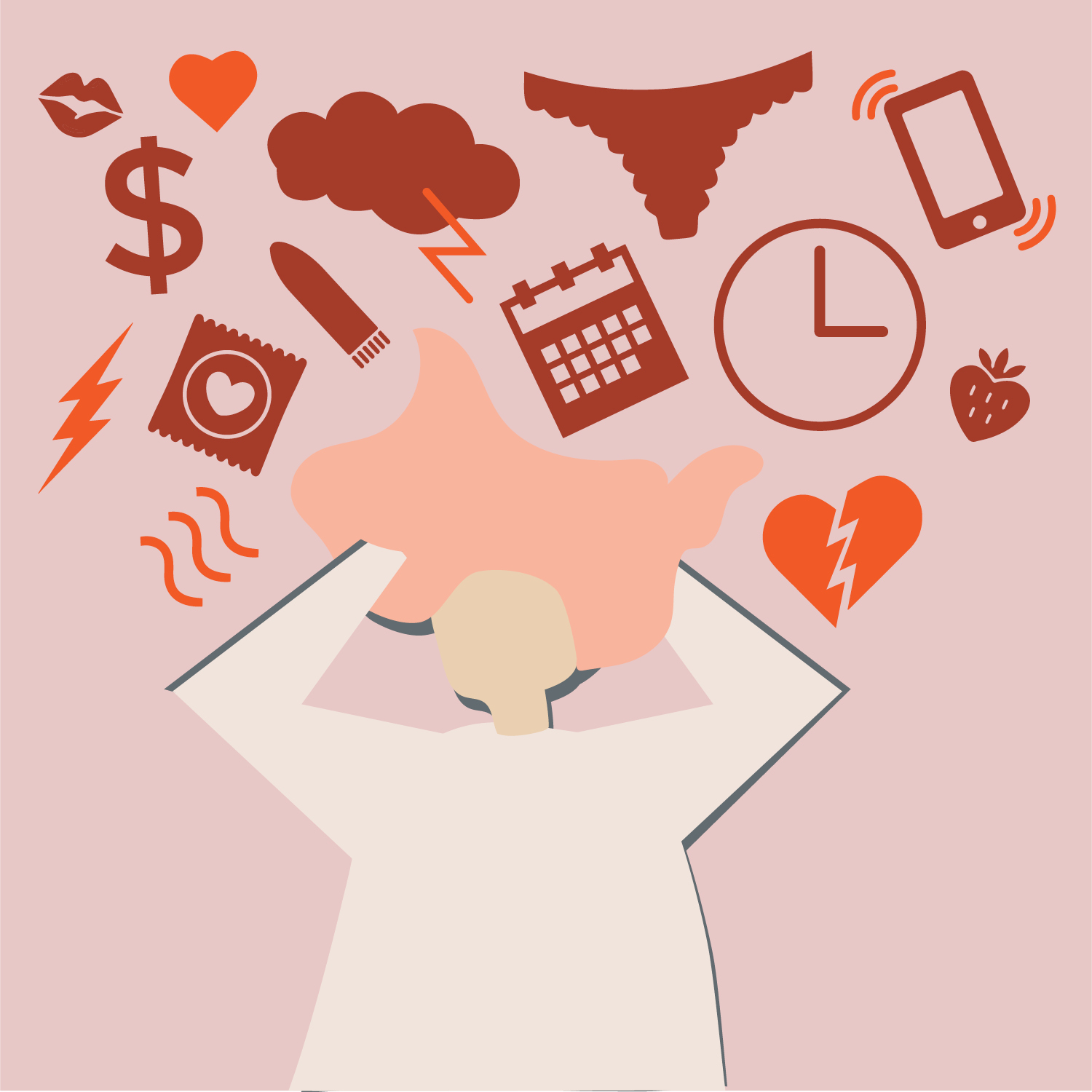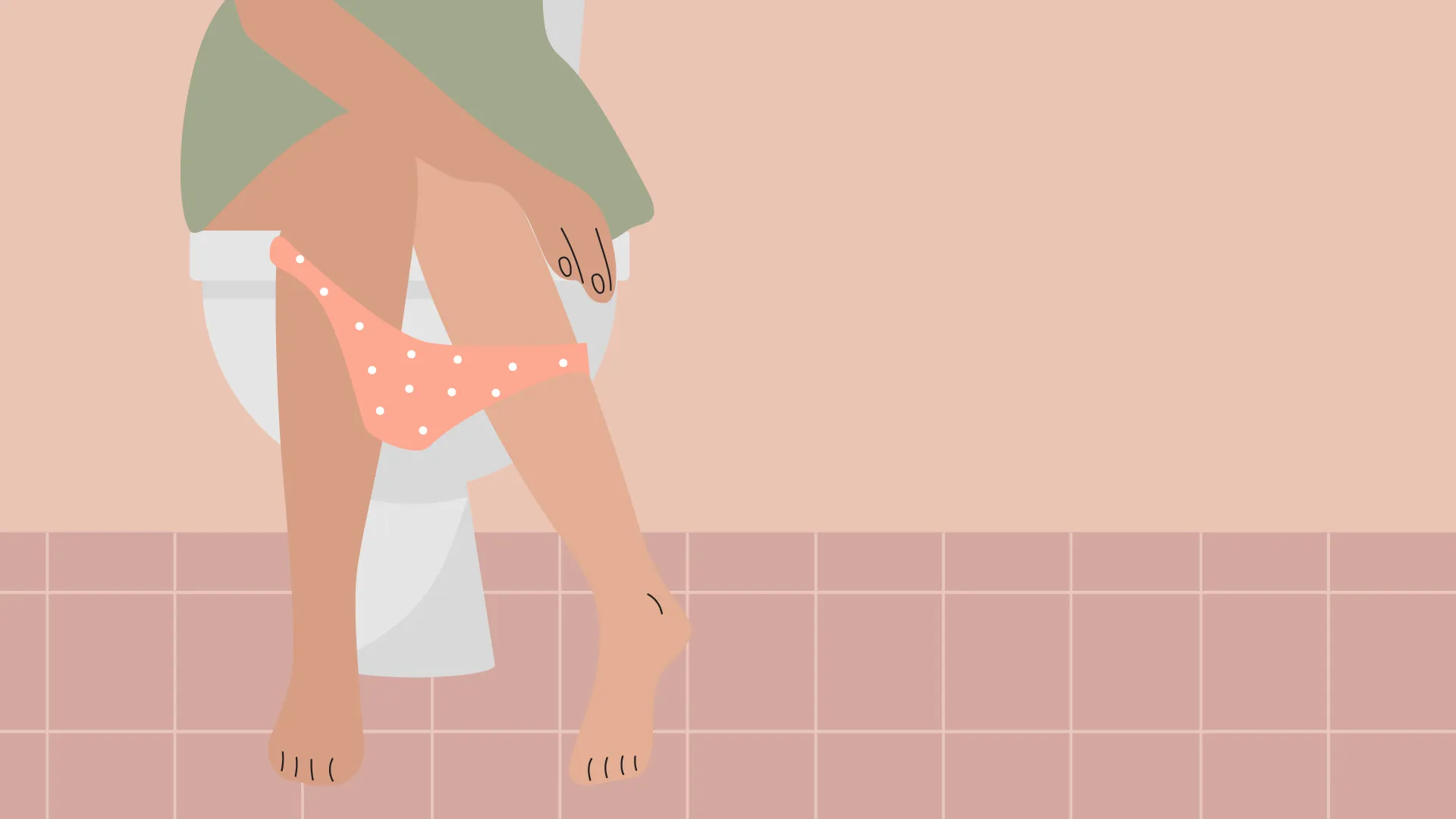Jun 06, 2025
WHY SOME EXPERIENCE DIARRHOEA BEFORE OR DURING THEIR PERIOD
Periods are a natural part of life, but they can bring along some less-than-pleasant companions. For many, cramps, mood swings, and fatigue are familiar challenges. But what about an unexpected visit from diarrhoea? Experiencing digestive discomfort before or during your period is common and can be linked to hormonal changes in your body.
Let’s break down why this happens and explore ways to manage these symptoms so you can feel more comfortable during your cycle.
What Causes Diarrhoea Before Your Period?
The arrival of diarrhoea can be attributed, in large part, to hormones. In the days leading up to menstruation, your body experiences a surge of prostaglandins -hormone-like chemicals that help the uterus contract to shed its lining.
While prostaglandins are crucial for your period, they don’t always stay in their lane. These chemicals can affect the muscles of the intestines, causing them to contract more frequently and lead to loose stools.
Other potential causes include:
- Progesterone Changes: Progesterone levels drop just before your cycle, which can impact how your digestive system functions.
- Dietary Shifts: Cravings for comfort foods high in sugar or fat during PMS can irritate the stomach and exacerbate symptoms.
- Stress: Premenstrual stress or anxiety may heighten digestive sensitivity.
During Your Period: Is It Different?
For some, digestive discomfort extends into their period. Diarrhoea during your cycle is caused by the same culprits – prostaglandins - but might feel more intense because these hormones are most active at the start of menstruation.
Here’s what makes it unique:
- Increased Blood Flow: The hormonal shifts that cause uterine contractions can also impact blood flow to the intestines, altering their normal rhythm.
- Inflammation: Menstruation can trigger mild inflammation in the body, further irritating the digestive system.
Although uncomfortable, this type of diarrhoea is usually short-lived and subsides as hormone levels stabilise.
Is Diarrhoea a Premenstrual Symptom?
Yes, it can be a premenstrual symptom, but it’s not as commonly discussed as bloating or cramps. It’s part of a broader category of digestive issues that some people face during menstruation. In addition, these can include:
- Bloating
- Gas
- Nausea
- Changes in appetite
If you notice consistent patterns of digestive discomfort leading up to your period, it’s worth mentioning to a healthcare provider to ensure there’s no underlying condition.
Managing Digestive Issues
While you can’t entirely prevent hormonal shifts, there are steps you can take to reduce their impact on your digestive health:
- Watch Your Diet: Certain foods can either aggravate or soothe your digestive system:
- Avoid: Spicy foods, caffeine, and heavy, greasy meals.
- Include: High-fibre options like fruits, vegetables, and whole grains to support regular digestion.
- Stay Hydrated: Loose stools can dehydrate your body quickly, so make sure to drink plenty of water. Herbal teas like peppermint or ginger may also help soothe the stomach.
- Exercise Gently: Light physical activity like yoga or walking can reduce stress and improve digestion. Avoid intense workouts that could further upset your stomach.
- Consider Over-the-Counter Remedies: Anti-diarrhoeal medications can provide relief if symptoms are severe. Always consult your doctor before trying new treatments.
When to See a Doctor
While occasional diarrhoea tied to your menstrual cycle is normal, persistent or severe symptoms should not be ignored. Talk to a healthcare provider if you experience:
- Diarrhoea lasting more than a few days
- Blood in your stool
- Significant weight loss or other unusual symptoms
These could be signs of a more serious digestive condition, such as irritable bowel syndrome (IBS) or endometriosis, which may worsen during menstruation.
How to Track Digestive Patterns
Understanding your body’s rhythms can make a big difference in managing symptoms. Keeping a journal of your cycles and symptoms can help you identify patterns and triggers. Note when digestive issues occur, what you ate, and any other relevant factors. This information can also be invaluable when discussing concerns with your doctor.
Final Thoughts
Experiencing diarrhoea before or during your period might seem frustrating and unexpected, but it’s a common reaction to hormonal fluctuations in the body as prostaglandins and other factors play a significant role in influencing digestive health during menstruation.
The good news? With the right approach, you can ease your symptoms and make your period more manageable. Simple adjustments like dietary changes and stress management can significantly improve your comfort.
Remember, your body is unique, and it’s important to listen to its signals. If something doesn’t feel right or your symptoms become difficult to handle, don’t hesitate to seek professional advice. You deserve to feel your best - not just during your period, but every day.
Blogs

Jun 08, 2022
EXPLORING PERIOD CARE IN CULTURES AROUND THE WORLD
Our TOM Talks panelist Sabina McKenna explores how different cultures around the world approach period care.
Read More
Jun 08, 2022
STOP APOLOGISING FOR HAVING YOUR PERIOD
Our TOM Talks panelist Mel Mason talks about the importance of not apologising for having your period.
Read More
Jun 07, 2022
STRESSED? NOT SLEEPING? TRYING TO CONCEIVE?
TOM Talk's panelist Georgia Hartmann discussed the links between stress, sleep and fertility.
Read More
Jun 07, 2022
STRESS AND HOW IT AFFECTS YOUR SEX DRIVE
Certified sex coach Georgia Grace is here to unpack the link between stress and sex.
Read More
